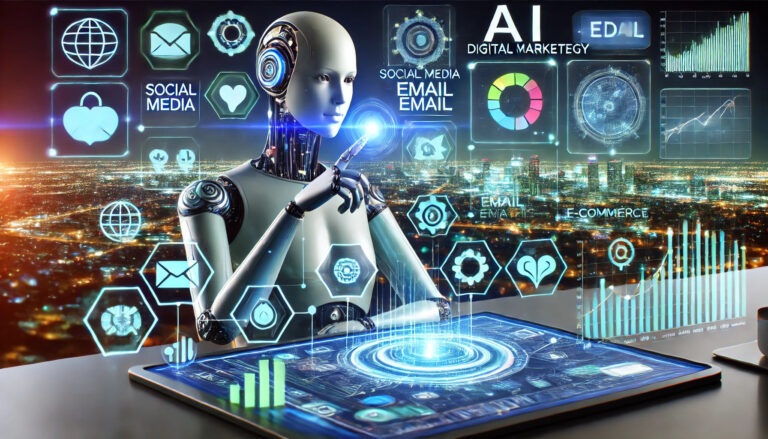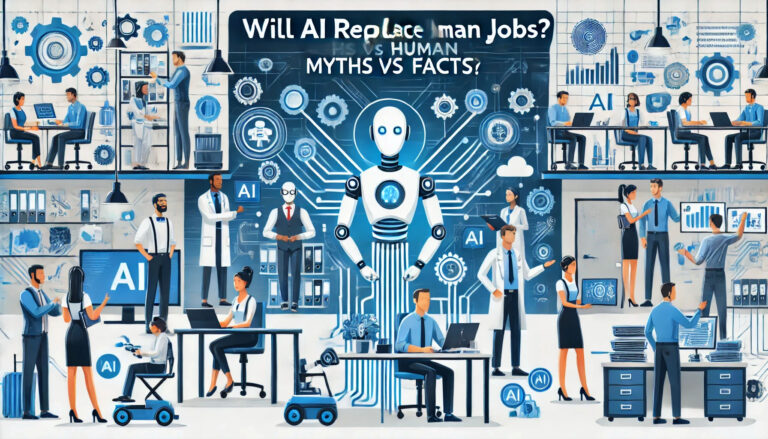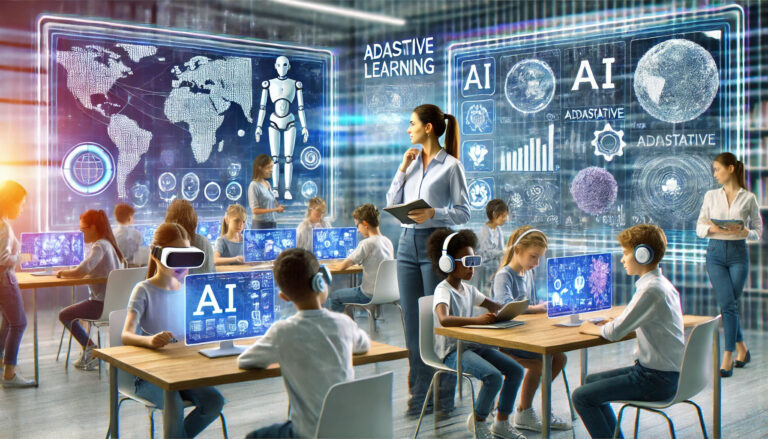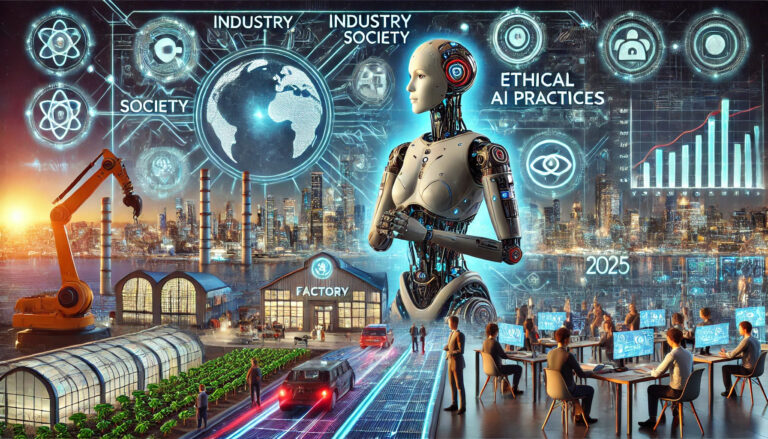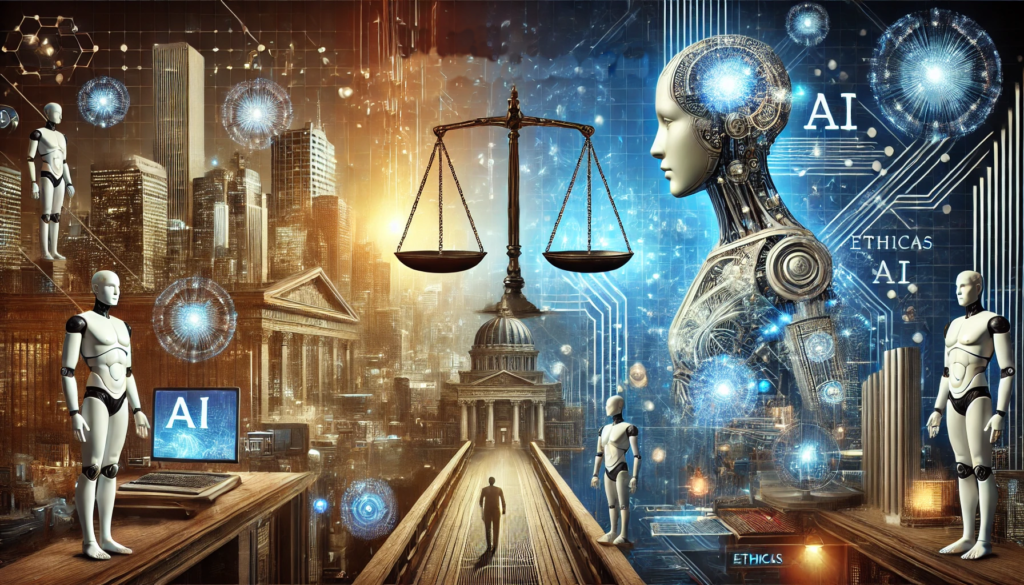
Artificial Intelligence (AI) has become an integral part of our lives, revolutionizing industries and transforming daily activities. From healthcare to entertainment, AI’s applications are vast and impactful. However, with this rapid growth come significant ethical challenges. This article explores the ethical implications of AI, focusing on its societal, cultural, and global impacts while emphasizing the need to balance innovation with responsibility.
Table of Contents
- What is Artificial Intelligence?
- The Rise of AI: Opportunities and Challenges
- Key Ethical Implications of AI
- AI and Human Rights
- AI in Healthcare: Ethical Challenges
- Autonomous Weapons: Moral Dilemmas
- AI in Social Media and Misinformation
- Environmental Impact of AI
- Cultural Perspectives on AI Ethics
- Governing AI: Policies and Regulations
- The Future of Ethical AI
- Conclusion: Balancing Progress and Responsibility
1. What is Artificial Intelligence?
Definition: AI refers to the simulation of human intelligence by machines, enabling them to learn, reason, and act autonomously. Key components of AI include:
- Machine Learning (ML): Improves performance through data-driven learning.
- Natural Language Processing (NLP): Enables understanding and generation of human language.
- Computer Vision: Allows machines to interpret visual data.
- Robotics: Integrates AI into automation for complex tasks.
Applications:
- Personalized recommendations (e.g., streaming platforms).
- Advanced robotics in manufacturing and healthcare.
- Predictive analytics in business and sustainability.
AI’s transformative potential brings immense opportunities but also significant ethical challenges that need careful consideration.
2. The Rise of AI: Opportunities and Challenges
Opportunities:
- Healthcare: AI enhances early disease detection, reduces medical errors, and personalizes treatments.
- Education: Adaptive learning systems cater to individual needs.
- Business: Predictive analytics and operational efficiencies drive growth.
- Sustainability: AI optimizes energy usage and monitors climate change.
Challenges:
- Bias: Algorithms can perpetuate societal inequalities.
- Privacy Risks: Massive data collection raises surveillance concerns.
- Job Displacement: Automation threatens traditional employment sectors.
- Security: AI systems are vulnerable to cyberattacks.
Balancing these opportunities with ethical considerations is critical for equitable progress.
3. Key Ethical Implications of AI
Bias and Fairness
- Issue: AI systems trained on biased data can reinforce discrimination.
- Examples: Facial recognition inaccuracies and biased recruitment algorithms.
- Solutions:
- Use diverse datasets.
- Regularly audit AI systems.
- Incorporate interdisciplinary teams for inclusive design.
Privacy Concerns
- Issue: AI’s reliance on extensive data collection risks user privacy.
- Examples: Surveillance systems and targeted advertising.
- Solutions:
- Strengthen data protection laws.
- Prioritize user consent and data minimization.
- Enhance transparency in data policies.
Transparency and Accountability
- Issue: Many AI systems operate as “black boxes,” making their decision-making processes opaque.
- Examples: Loan approvals and criminal sentencing.
- Solutions:
- Develop Explainable AI (XAI).
- Mandate ethical audits.
- Establish accountability frameworks for AI failures.
Employment and Economic Displacement
- Issue: Automation replaces repetitive jobs, creating workforce disruptions.
- Solutions:
- Implement reskilling programs.
- Introduce social safety nets.
- Foster AI-driven job creation in emerging fields like data science.
4. AI and Human Rights
Positive Impacts:
- Tracking violations via satellite imagery and AI-powered tools.
- Enhancing accessibility for individuals with disabilities.
- Promoting transparency in governance.
Risks:
- Surveillance: AI can suppress dissent and invade privacy.
- Discrimination: Biased systems harm marginalized groups.
- Inequality: Unequal access to AI widens socio-economic gaps.
Recommendations:
- Advocate for international treaties regulating AI in surveillance and warfare.
- Develop AI guided by human rights principles.
- Foster collaborations between governments, NGOs, and tech companies.
5. AI in Healthcare: Ethical Challenges
Benefits:
- Accurate diagnosis and personalized treatments.
- Streamlined hospital operations.
Challenges:
- Data Privacy: Protect sensitive medical records.
- Bias: Ensure fair treatment for all demographics.
- Access Inequality: Address cost barriers.
Solutions:
- Use anonymized datasets.
- Train AI with diverse data.
- Subsidize AI-driven healthcare solutions.
6. Autonomous Weapons: Moral Dilemmas
Definition: Autonomous weapons can identify and eliminate targets without human intervention.
Concerns:
- Loss of human control.
- Potential misuse by rogue actors.
- Risk of programming errors leading to catastrophic consequences.
Solutions:
- Advocate for bans or strict regulations.
- Ensure human oversight in AI deployments.
- Promote international treaties.
7. AI in Social Media and Misinformation
Positive Impacts:
- Content moderation and harmful material detection.
- Enhanced user experiences through personalized recommendations.
Challenges:
- Amplification of misinformation and echo chambers.
- Manipulation via bots and deepfakes.
Solutions:
- Prioritize credible sources in AI algorithms.
- Increase transparency in moderation practices.
- Hold platforms accountable for societal impacts.
8. Environmental Impact of AI
Positive Contributions:
- Climate modeling and energy optimization.
- Improved recycling and waste management.
Negative Impacts:
- High energy consumption in training models.
- Increased electronic waste.
Mitigation Strategies:
- Use renewable energy for AI research.
- Develop energy-efficient algorithms.
- Implement effective e-waste policies.
9. Cultural Perspectives on AI Ethics
Western Views:
- Focus on individual rights and corporate accountability.
- Emphasis on regulatory frameworks.
Eastern Views:
- Prioritize societal harmony and collective good.
- Rapid adoption often outpaces ethical guidelines.
Global Approach:
- Foster international dialogue.
- Respect cultural diversity while ensuring universal human rights.
10. Governing AI: Policies and Regulations
Current Landscape:
- EU: AI Act emphasizes transparency and accountability.
- US: Sector-specific regulations.
- China: AI governance aligns with state goals.
Challenges:
- Balancing innovation with control.
- Addressing global disparities.
- Keeping pace with technological advancements.
Recommendations:
- Develop global AI standards.
- Establish independent oversight bodies.
- Encourage public-private partnerships.
11. The Future of Ethical AI
Emerging Technologies:
- General AI (AGI) and its implications.
- Brain-computer interfaces and quantum AI.
Vision:
- Foster interdisciplinary collaboration.
- Educate the public on AI risks and benefits.
- Ensure inclusive and sustainable development.
12. Conclusion: Balancing Progress and Responsibility
AI’s potential is transformative but comes with significant ethical considerations. Governments, businesses, and individuals must collaborate to ensure AI systems are transparent, fair, and inclusive. By prioritizing ethical innovation and fostering global cooperation, we can harness AI as a tool for equitable progress, ensuring its benefits are shared by all.
